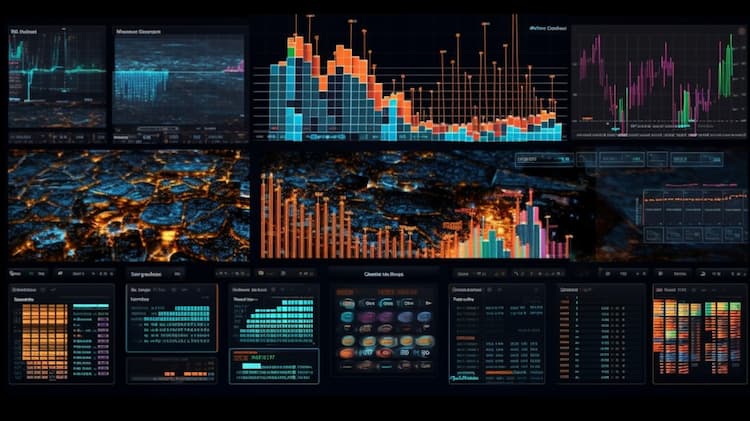
What are the best stocks ETFs?
The best stocks exchange-traded funds (ETFs) provide investors with an efficient and diversified way to invest in the stock market. These ETFs offer exposure to a wide range of stocks, enabling investors to potentially benefit from the performance of different companies and sectors. Popular choices among investors include ETFs that track broad market indexes such as the S&P 500, sector-specific ETFs, and those focused on specific investment strategies like growth or value. These ETFs offer investors the opportunity to participate in the stock market while providing diversification and ease of trading.
BlackRock iShares S&P 500 ETF (IVV) vs. Vanguard Total Stock Market ETF (VTI)
When it comes to investing in stocks through exchange-traded funds (ETFs), two popular options that investors often consider are BlackRock's iShares S&P 500 ETF (IVV) and Vanguard's Total Stock Market ETF (VTI). Both ETFs provide exposure to a wide range of stocks, but they differ in their underlying indexes and investment strategies.
IVV aims to track the performance of the S&P 500 Index, which represents the largest publicly traded companies in the United States. It offers investors exposure to blue-chip stocks across various sectors. On the other hand, VTI seeks to track the performance of the CRSP US Total Market Index, which includes stocks of companies of all sizes, providing broader market coverage.
While both IVV and VTI provide exposure to stocks, IVV is more focused on large-cap companies, while VTI includes a broader range of market capitalizations. This distinction may be a crucial factor for investors who prefer a more concentrated exposure to the largest companies or a more diversified approach across the entire stock market.
How Do ETFs Compare to Other Financial Instruments?
ETFs have gained significant popularity among investors due to their unique characteristics and benefits compared to other financial instruments. Here's a comparison of ETFs with some common investment options:
Mutual Funds: ETFs share similarities with mutual funds, such as diversification and professional management. However, ETFs trade on an exchange throughout the day like stocks, while mutual funds are priced once a day based on the net asset value (NAV). ETFs also tend to have lower expense ratios compared to actively managed mutual funds.
Individual Stocks: ETFs offer investors a way to gain exposure to a diversified portfolio of stocks through a single investment. This eliminates the need for investors to select and manage individual stocks themselves, reducing the risk associated with concentrated holdings.
Index Funds: ETFs often track specific indexes, making them similar to index funds. However, ETFs provide the advantage of intraday trading and potentially lower costs due to their structure. Additionally, ETFs may offer tax efficiency through in-kind creation and redemption of shares.
Options and Futures: ETFs can be used as underlying assets for options and futures contracts, providing investors with additional investment strategies and hedging opportunities. This flexibility is not available with other financial instruments.
 stocks ETF,IVV,VTI, overlap What are the best stocks ETFs?
stocks ETF,IVV,VTI, overlap What are the best stocks ETFs?
What Factors Should You Consider When Choosing an ETF?
When selecting an ETF, there are several factors to consider:
Investment Objective: Determine whether the ETF aligns with your investment goals. Different ETFs may focus on specific sectors, geographic regions, or investment styles.
Expense Ratio: Compare the expense ratios of different ETFs. Lower expense ratios can have a positive impact on long-term returns.
Tracking Error: Assess the ETF's ability to closely track its underlying index. Lower tracking error indicates better performance relative to the index.
Liquidity: Consider the average trading volume and bid-ask spreads of the ETF. Higher liquidity ensures ease of buying and selling shares at fair prices.
Are ETFs Suitable for Every Investor?
While ETFs offer various advantages, they may not be suitable for every investor. Here are some factors to consider:
Risk Tolerance: ETFs, like other investments, come with risks. Investors should assess their risk tolerance and consider the volatility and potential losses associated with the underlying assets of the ETF.
Investment Horizon: ETFs are well-suited for long-term investors due to their diversification and potential for capital appreciation. Short-term traders may find ETFs less suitable due to transaction costs.
Tax Implications: ETFs can generate capital gains when the underlying securities are sold. Investors should be aware of the tax consequences and consider tax-efficient ETFs or tax-advantaged accounts.
Investment Strategy: Consider whether the ETF aligns with your investment strategy. Some investors may prefer active management, while others may prefer passive index-based strategies.
Conclusion
When it comes to investing in stocks through ETFs, BlackRock's iShares S&P 500 ETF (IVV) and Vanguard's Total Stock Market ETF (VTI) are popular options worth considering. However, selecting the best ETF depends on individual investment objectives, risk tolerance, and preferences. It's essential to research and compare multiple ETFs before making an investment decision.
Disclaimer: This article is for informational purposes only and does not provide any investment advisory services. Investors should conduct their own research and consult with a qualified financial advisor before making investment decisions.
Sources:
BlackRock iShares S&P 500 ETF (IVV): Issuer Website | Investopedia
Vanguard Total Stock Market ETF (VTI): Issuer Website | Investopedia
FAQ
What are the Best Stocks ETFs?
The best stocks ETFs include funds such as the SPDR S&P 500 ETF Trust (SPY), Vanguard Total Stock Market ETF (VTI), and iShares Russell 2000 ETF (IWM). These ETFs are highly regarded for their exposure to the stock market and their ability to track popular indices or specific market segments.
What is the SPDR S&P 500 ETF Trust (SPY)?
The SPDR S&P 500 ETF Trust (SPY) is one of the most widely recognized and traded ETFs. It aims to track the performance of the S&P 500 Index, which represents 500 of the largest publicly traded companies in the U.S. across various sectors.
What is the Vanguard Total Stock Market ETF (VTI)?
The Vanguard Total Stock Market ETF (VTI) is an ETF designed to track the performance of the CRSP US Total Market Index. It offers investors exposure to the entire U.S. equity market, including large-cap, mid-cap, small-cap, and micro-cap stocks.
What is the iShares Russell 2000 ETF (IWM)?
The iShares Russell 2000 ETF (IWM) is an ETF that seeks to track the performance of the Russell 2000 Index. It provides exposure to small-cap U.S. stocks, representing approximately 2,000 smaller companies in the Russell 3000 Index.
What are the advantages of investing in stocks ETFs?
Investing in stocks ETFs offers several advantages, including broad market exposure, diversification across multiple companies or sectors, liquidity, ease of trading on the stock exchange, and the potential for long-term capital appreciation. Stocks ETFs can be an efficient way to gain exposure to the stock market without having to select individual stocks.









